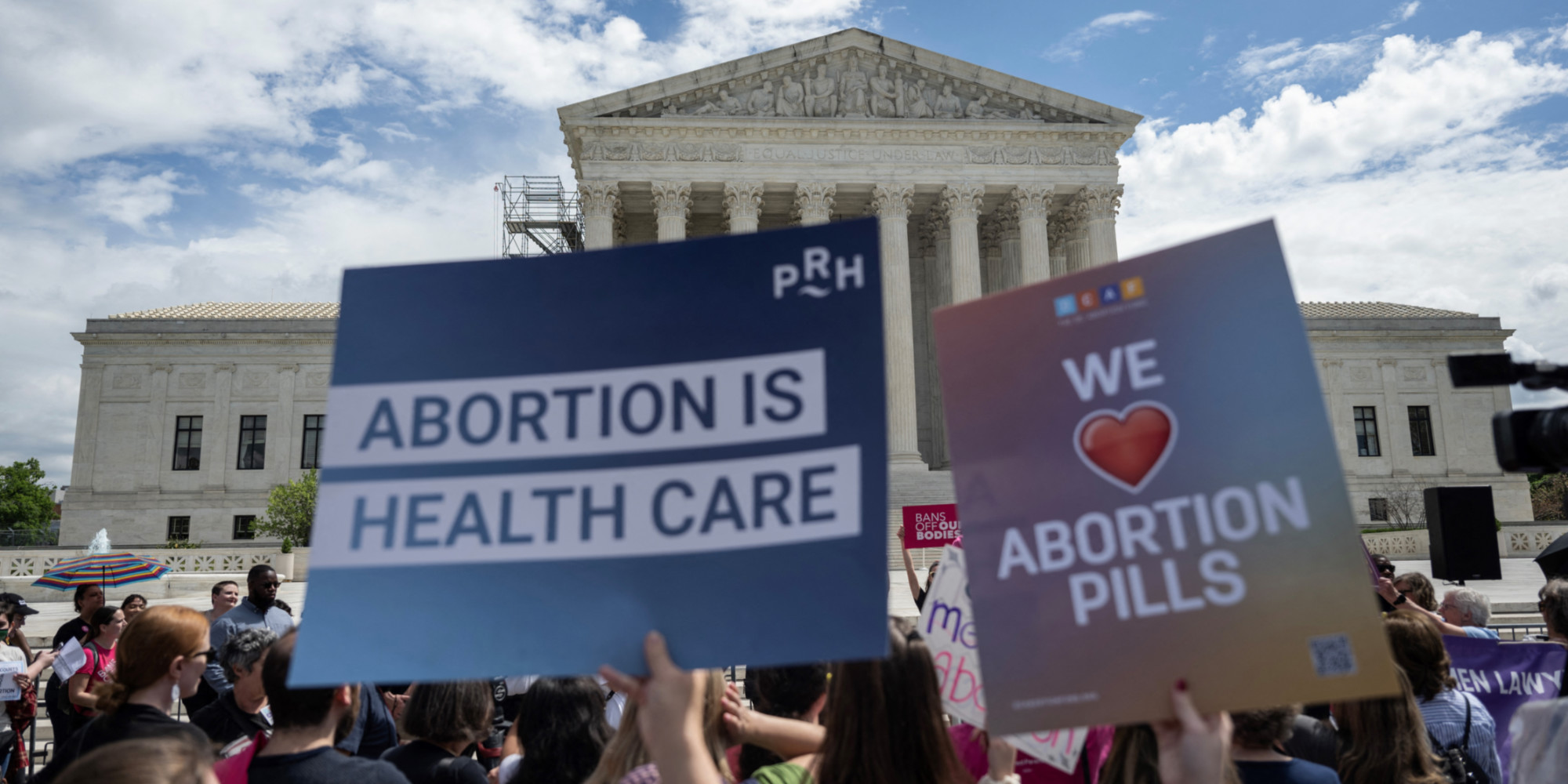Europe 1 with AFP 12:26pm, April 22, 2023
The U.S. Supreme Court has decided to maintain access to an abortion pill used for more than half of abortions in the country for now, suspending restrictions imposed by lower courts. The federal government had petitioned the high court to have those decisions stayed, which the temple of law granted.The U.S. Supreme Court ruled Friday to maintain access to an abortion pill used for more than half of abortions in the country for now, suspending lower court restrictions and offering temporary respite to abortion rights advocates. The federal government had petitioned the high court urgently to stay these judgments, which the temple of law granted. Only two conservative justices on the court, Clarence Thomas and Samuel Alito, disagreed Friday with the nine-judge majority decision.
The Supreme Court's decision means that American women will be able to continue to receive mifepristone, the name of the abortion pill, in the mail in states where abortion remains legal. This is the Court's most significant intervention on the issue of abortion since it struck down the constitutional guarantee to abortion in June 2022. But the legal battle over the abortion pill will continue, unleashing strong passions.
New hearing in May
Avoiding to openly rejoice in this stage victory, Democratic President Joe Biden immediately reacted to an announcement blocking for the moment measures "that would have undermined the medical judgment of the Federal Drug Agency (FDA) and endangered the health of women". The family planning organization Planned Parenthood called this "good news," but that "the facts remain the same: access to mifepristone should never have been threatened in the first place."
One of the conservative and anti-abortion groups behind the case, Alliance Defending Freedom, said the FDA must "be held accountable for the damage it has caused." "Our case, which seeks to put women's health before politics, continues in lower courts," he wrote. A hearing is scheduled before an appeals court in New Orleans on May 17. More than five million American women have already taken mifepristone since it was cleared by the FDA more than 20 years ago.
Tribunal vs. Court
The legal headache began when a federal judge in Texas, known for his Christian faith, his ultra-conservative positions and appointed by Donald Trump, withdrew on April 7 the marketing authorization of mifepristone after being seized by anti-abortion activists. Despite scientific consensus, he considered that it posed risks to women's health. An appeals court in New Orleans, seized by the federal government, then allowed the abortion pill to remain allowed, but limited the access facilities granted by the FDA over the years.
His ruling prohibited the mailing of mifepristone and returned to use limited to seven weeks' pregnancy, instead of ten. Joe Biden's federal government then appealed to the Supreme Court. The latter temporarily maintained access to the abortion pill a week ago, suspending the decision of the Court of Appeal in order to have more time to examine the case.
Further complicating the case, a federal judge sitting in the state of Washington, appointed by Barack Obama, had ruled just after the decision of his colleague in Texas that mifepristone was "safe and effective" and had prohibited the FDA from withdrawing its approval in 17 states and in the capital.
Canada ready to help
The first suspension decided by the Supreme Court was valid until Wednesday just before midnight. But a likely sign of deep disagreement, Judge Alito said Wednesday that it was extended by 48 hours, until "23:59 p.m. Friday, April 21." The Court could choose to stay the decisions of the lower courts, uphold them, take up the case or refuse to get involved.
The abortion pill is already no longer officially available in fifteen American states that have recently banned abortion, even if backdoor routes have developed. The impact of restrictions or bans on this pill would therefore primarily affect states where abortion remains legal -- for many Democrats. Even in neighbouring Canada, the case has caused concern. Canada's Family Minister, Karina Gould, reiterated her country's intention to help American women if needed.

